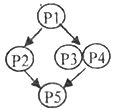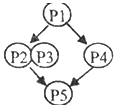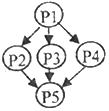题目内容
【题目】阅读理解
Washington: NASA has announced evidence that Jupiter's largest moon, Ganymede, has a saltwater ocean under its icy surface. The ocean seems to have more water than all the water on Earth's surface, according to new Hubble observations.
New Hubble observations of Ganymede's magnetic field strongly suggest that the moon, which is the largest in our whole solar system, is home to a subsurface ocean.

Scientists estimate that the oceanis 95 kilometres thick, which is about 10 times deeper than Earth's oceans. But unlike our salty waters, Ganymede's ocean is buried under 150 kilometres of ice.
While scientists have speculated (推测) since the 1970s about the presence of an ocean on Ganymede — the largest moon in our solar system — until now the only observational evidence came from a brief flyby by the Galileo spacecraft, which didn't observe the moon long enough to confirm a liquid ocean.
This discovery marks an important milestone, highlighting what only Hubble can accomplish. In its 25 years in orbit, Hubble has made many scientific discoveries in our own solar system. A deep ocean under the icy surface of Ganymede opens up further exciting possibilities for life beyond Earth.
Scientists_have_already_confirmed_the_existence_of_an_ocean_on_Europa,_another moon orbiting Jupiter, and NASA has announced plans to send an unmanned mission there searching for the life that might come with liquid water.
Hubble is a telescope that orbits Earth, but because of its impressive gravitational analyses it can be used to study the inside of far distant planets. Using these same principles, scientists could theoretically detect oceans on distant exoplanets as well.
【1】What can we learn about Ganymede from the passage?
A. It is a planet with the largest moon in our whole solar system.
B. Its ocean adds to people's excitement about life beyond Earth.
C. It will be used by NASA as a base for the Hubble telescope.
D. Its liquid ocean was first proved by the Galileo spacecraft.
【2】Which of the following best describes the writer's attitude towards Hubble?
A. Cautious. B. Doubtful.
C. Negative. D. Favourable.
【3】What does the underlined part in Paragraph 6 mean?
A. An underground ocean has been found in Europa.
B. The presence of an underground ocean in Europa is not possible.
C. It is now certain that there is an ocean on Europa.
D. No evidence has shown the existence of an ocean on Europa.
【4】What type of writing does this passage belong to?
A. A term essay.
B. A news report.
C. An experiment report.
D. An exploration review.
【答案】
【1】B
【2】D
【3】C
【4】B
【解析】试题解析:
【1】推理判断题。根据第五段最后一句“A deep ocean under the icy surface of Ganymede opens up further exciting possibilities for life beyond Earth.”可知,木星卫星Ganymede上海洋的存在激发了人们探索地球以外的生命的热情。故选B项。
【2】推理判断题。根据第五段第一句可知,这次具有里程碑意义的发现只有哈勃望远镜能够完成。由此可推知,作者对哈勃望远镜持支持态度。故选D项。
【3】句意猜测题。根据第六段中的“and NASA has announced plans to send ... with liquid water”可知,因为Europa上有水存在,NASA才宣布要在Europa上搜寻地外生命;由此可推知,画线句意为:科学家们已经证实Europa上存在海洋。故选C项。
【4】推理判断题。根据第一段“Washington: NASA has announced evidence ...”及文章内容可推知,本文为一篇新闻报道。故选B项。








